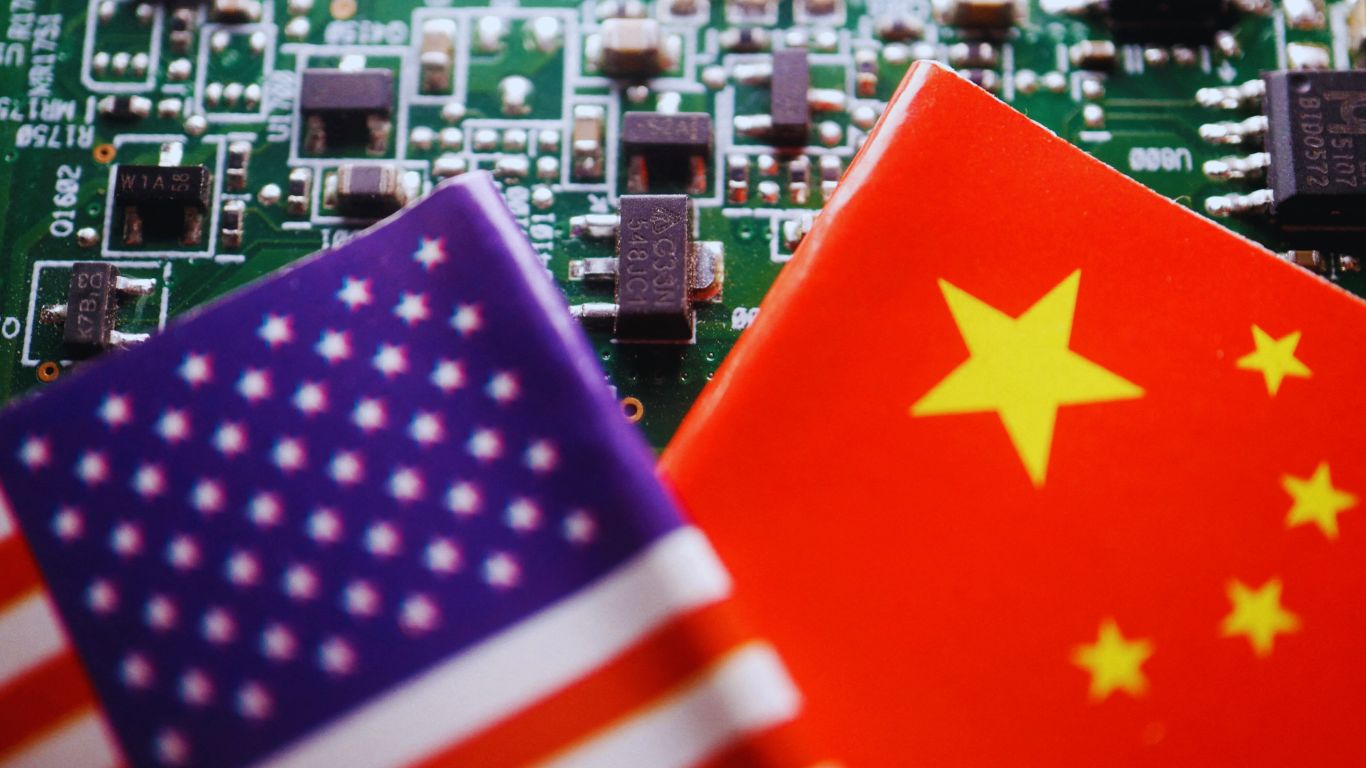China has taken a decisive step in escalating its tech rivalry with the United States by imposing a ban on the export of critical minerals such as gallium, antimony, and germanium. These minerals are essential for key technologies, including semiconductors, electronics, and advanced systems like artificial intelligence (AI), electric vehicles (EVs), and military equipment. The ban has intensified global geopolitical tensions, marking a critical development in the ongoing US-China trade war.
Understanding the Chinese Mineral Ban
What Are Gallium, Antimony, and Germanium?
China’s restrictions focus on minerals with essential roles in modern technologies:
- Gallium: Used in advanced semiconductors, LEDs, radar systems, and smartphones.
- Germanium: Essential for fiber optics, infrared optics, solar panels, and high-performance electronics.
- Antimony: Critical for flame retardants, batteries, and alloys used in military applications.
These materials are irreplaceable for industries reliant on precision manufacturing and cutting-edge innovation.
China’s Dominance in Mineral Production
China leads the global production of these minerals, controlling over 80% of gallium and 60% of germanium supplies. For years, this dominance has given China significant leverage in global trade, especially in sectors like electronics, EVs, and defense.
Why Did China Impose the Ban?
China’s Commerce Ministry cited national security concerns as the rationale behind the export restrictions. However, the ban is widely seen as a retaliatory measure against the US government’s recent export controls on advanced semiconductor chips.
- The US export restrictions, announced earlier, aimed to hinder China’s access to cutting-edge AI and defense technologies.
- By limiting exports of critical minerals, China is leveraging its dominance to counter the US’s restrictions, showcasing its strategic role in global supply chains.
The Impact of China’s Mineral Ban on Global Supply Chains
The ban on gallium, germanium, and antimony could cause severe disruptions across global supply chains, particularly in industries reliant on these materials.
1. Disruptions in Semiconductor Manufacturing
Semiconductors are the backbone of modern technology, used in everything from smartphones to advanced AI systems. The restriction on gallium and germanium could lead to:
- Delays in production for US and European semiconductor manufacturers.
- Increased costs as companies scramble to secure alternative supplies.
- Innovation setbacks, especially in AI and defense technologies.
2. Impact on Electronics and Renewable Energy
Germanium is vital for solar panels and fiber optics, while gallium powers LED technology and smartphone displays. Shortages may affect the production timelines for consumer electronics and clean energy initiatives.
3. Consequences for Defense Systems
Antimony and germanium are key to radar systems, infrared optics, and other military equipment. The ban may create vulnerabilities in defense industries reliant on stable mineral supplies.
4. Increased Costs for Electric Vehicles (EVs)
EV manufacturers rely on gallium for energy-efficient components. Supply disruptions could lead to increased costs and hinder the growth of the EV market.
Economic Implications of the Ban
The US Geological Survey (USGS) identifies gallium, germanium, and antimony as part of the 50 “critical minerals” essential to national security. Disruptions in these minerals could result in economic losses exceeding $3 billion globally.
Industries Most Affected
- Semiconductor Industry
- Consumer Electronics
- Renewable Energy
- Defense and Aerospace
China’s Strategy for Technological Self-Sufficiency
While limiting mineral exports, China is simultaneously encouraging its domestic industries to:
- Reduce reliance on US technologies.
- Explore alternative supply sources for materials currently imported.
This strategy aims to accelerate China’s technological self-sufficiency, reducing its exposure to global supply chain vulnerabilities and positioning itself as a dominant player in critical technologies.
US and Global Response to the Mineral Ban
The mineral ban has heightened urgency for countries dependent on China’s mineral exports to diversify their supply chains.
1. Search for Alternative Sources
Countries like Australia, Canada, and India are expected to play a pivotal role in filling the supply gap by ramping up production of critical minerals.
2. Strengthening Domestic Production
The US and European nations are likely to increase investments in:
- Domestic mining operations.
- Technological innovation to reduce reliance on scarce minerals.
3. Strategic Alliances
To counter China’s mineral dominance, countries may form strategic alliances to secure critical resources, focusing on:
- Building partnerships with mineral-rich nations.
- Enhancing recycling technologies for critical materials.
Global Geopolitical Tensions: A New Era of Tech Competition
The Chinese mineral ban highlights the strategic importance of critical materials in the US-China tech rivalry. Both nations are vying for technological dominance, and control over resources like gallium, germanium, and antimony has emerged as a critical battlefield.
Key Drivers of Tension
- The US aims to maintain its edge in AI and defense technologies.
- China seeks to challenge this dominance while safeguarding its control over vital resources.
The ban signals a new phase in the global tech war, where critical minerals are the latest tools of economic and strategic leverage.
What’s Next for the Tech Industry?
As the geopolitical landscape evolves, industries must prepare for long-term disruptions and rising competition. Key strategies moving forward include:
- Investing in alternative mineral sources.
- Diversifying supply chains to reduce dependence on a single country.
- Enhancing technological innovation to find substitutes for critical minerals.
Conclusion
China’s mineral ban marks a pivotal moment in the ongoing US-China tech war. By leveraging its dominance in gallium, germanium, and antimony production, China has demonstrated the strategic value of critical minerals in global trade and technology. The move has far-reaching implications for semiconductor supply chains, consumer electronics, renewable energy, and defense systems.
As nations scramble to find alternative sources and fortify their supply chains, the global tech industry stands at a crossroads. How this conflict unfolds will shape the future of technological progress, economic stability, and geopolitical alliances.















